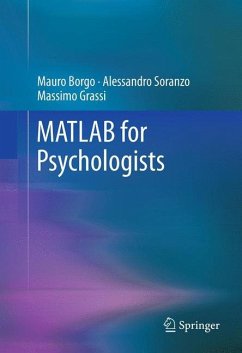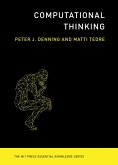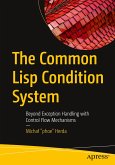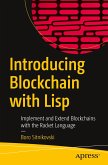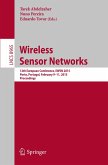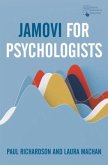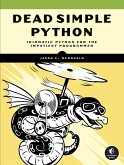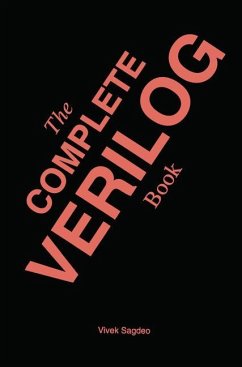The matrix laboratory interactive computing environment-MATLAB-has brought creativity to research in diverse disciplines, particularly in designing and programming experiments. More commonly used in mathematics and the sciences, it also lends itself to a variety of applications across the field of psychology. For the novice looking to use it in experimental psychology research, though, becoming familiar with MATLAB can be a daunting task.
MATLAB for Psychologists expertly guides readers through the component steps, skills, and operations of the software, with plentiful graphics and examples to match the reader's comfort level. Using an extended illustration, this concise volume explains the program's usefulness at any point in an experiment, without the limits imposed by other types of software. And the authors demonstrate the responsiveness of MATLAB to the individual's research needs, whether the task is programming experiments, creating sensory stimuli, running simulations, or calculating statistics for data analysis.
Key features of the coverage:
Thinking in a matrix way.Handling and plotting data.Guidelines for improvedprogramming, sound, and imaging.Statistical analysis and signal detection theory indexes.The Graphical User Interface.The Psychophysics Toolbox.
MATLAB for Psychologists serves a wide audience of advanced undergraduate and graduate level psychology students, professors, and researchers as well as lab technicians involved in programming psychology experiments.
MATLAB for Psychologists expertly guides readers through the component steps, skills, and operations of the software, with plentiful graphics and examples to match the reader's comfort level. Using an extended illustration, this concise volume explains the program's usefulness at any point in an experiment, without the limits imposed by other types of software. And the authors demonstrate the responsiveness of MATLAB to the individual's research needs, whether the task is programming experiments, creating sensory stimuli, running simulations, or calculating statistics for data analysis.
Key features of the coverage:
Thinking in a matrix way.Handling and plotting data.Guidelines for improvedprogramming, sound, and imaging.Statistical analysis and signal detection theory indexes.The Graphical User Interface.The Psychophysics Toolbox.
MATLAB for Psychologists serves a wide audience of advanced undergraduate and graduate level psychology students, professors, and researchers as well as lab technicians involved in programming psychology experiments.
From the book reviews:
"The reviewed book is written to help newcomers in using MATLAB for research in experimental psychology, including others. ... Different experiment scripts are presented in the book to enhance readers' ability to write MATLAB scripts of their own. Each chapter lists explanation tables, functions declaration, and aspects of different declaration values." (Adriana Horníková, Technometrics, Vol. 55 (2), May, 2013)
"The authors have produced a tutorial-like handbook that might be suitable for lab use in courses where students may have no previous programming experience. It is organized into ten easy-to-read chapters. ... The book is clearly written ... . This book includes some interesting examples from psychology research, which might also be useful in courses for nonpsychologists. ... In summary, this book is a pragmatic hands-on tutorial on MATLAB that might be useful to scientists ... including most psychologists and social scientists." (Fernando Berzal, ACM Computing Reviews, December, 2012)
"The reviewed book is written to help newcomers in using MATLAB for research in experimental psychology, including others. ... Different experiment scripts are presented in the book to enhance readers' ability to write MATLAB scripts of their own. Each chapter lists explanation tables, functions declaration, and aspects of different declaration values." (Adriana Horníková, Technometrics, Vol. 55 (2), May, 2013)
"The authors have produced a tutorial-like handbook that might be suitable for lab use in courses where students may have no previous programming experience. It is organized into ten easy-to-read chapters. ... The book is clearly written ... . This book includes some interesting examples from psychology research, which might also be useful in courses for nonpsychologists. ... In summary, this book is a pragmatic hands-on tutorial on MATLAB that might be useful to scientists ... including most psychologists and social scientists." (Fernando Berzal, ACM Computing Reviews, December, 2012)
From the reviews: "The authors have produced a tutorial-like handbook that might be suitable for lab use in courses where students may have no previous programming experience. It is organized into ten easy-to-read chapters. ... The book is clearly written ... . This book includes some interesting examples from psychology research, which might also be useful in courses for nonpsychologists. ... In summary, this book is a pragmatic hands-on tutorial on MATLAB that might be useful to scientists ... including most psychologists and social scientists." (Fernando Berzal, ACM Computing Reviews, December, 2012)

